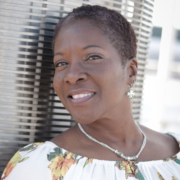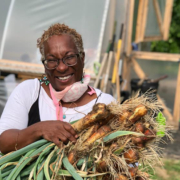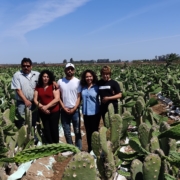Natasha “Jonelle” Roberson
Just before the COVID-19 pandemic, Jonelle Roberson purchased 18 acres of land in Blythe, Georgia, with the intention of creating a living space for her family. With the onset of COVID-19, she was inspired to produce enough food to eliminate her family’s dependence on grocery stores. As it turned out, growing and managing the garden for the first two years was a great challenge, and almost none of the crops planted made it to maturity. During that time, Jonelle found minor success with watermelon, collards, and chives. Now, she is successfully managing a 1,000 sq. Ft. garden, 1/3 acre of fruit trees, and an ancestor garden with herbs and fruit. Jonelle makes a point of including regenerative practices on her property and has a pollinator garden to support insect biodiversity on the property.
In the time since her initial challenges as a farmer, Jonelle has started to market her niche products, including water, custom teas, herbal creams, and juice, all of which are extracted from or grown on the property. She also plans to develop a You-Pick that will allow customers to customize their processed products while on the farm. Her philosophy around a healthy lifestyle includes the alignment of mind, body, and spirit. In addition to the self-care products she produces on the farm, she also teaches interpersonal communication.
As a Black farmer, Jonelle has faced several challenges in the community and has shared her experiences with others who have similar stories. In speaking on broader issues, Jonelle mentioned the experiences of other Black farmers who are reluctant to get their property involved in government programs due to a long history of discrimination. She described one personal experience of being refused service at a farm supply store for no obvious reason other than the fact that she is a person of color. In a similar experience with insurance providers, she struggled greatly in connecting with the right people to help her and when she was finally able to speak to the right people, they would not call back or they would give her the run-around. Jonelle has found it necessary to figure out where she is welcome and where she isn’t, and she then supports and patronizes those businesses that are open and welcoming to her.
The complicated nature of running multiple enterprises and gaining the necessary information, knowledge, and experience to run them effectively is Jonelle’s greatest challenge. She addresses this by joining groups that provide support and information and whose members are mutually supportive. Additionally, Jonelle is very active in several of these groups and supports them by providing meeting spaces, teaching, and collaboration with other farmers. She views relatability as one of the most important factors in making organizations that serve farmers efficacious in the delivery of their mission.


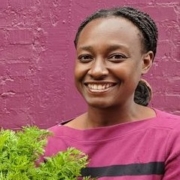
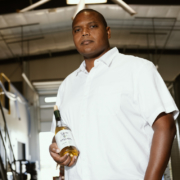
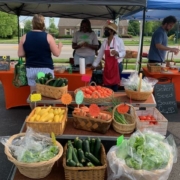
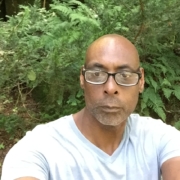
![thumbnail_ed-hunt[1] Ed Hunt](https://attra.ncat.org/wp-content/uploads/2022/08/thumbnail_ed-hunt1-180x180.jpg)
